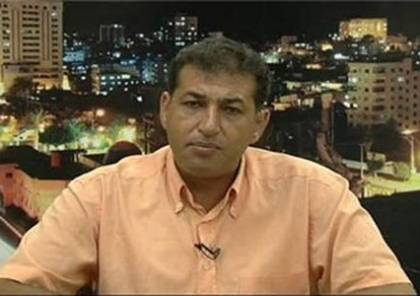Still trapped in death’s clutches
Al-Khamisa News Network - Gaza

Author: Akram Atta Allah
Can political observers interpret what U.S. President Donald Trump wants? One moment he pursues a relentless deportation plan dreaming of the Riviera, another he meets to decide the fate of Gaza and its reconstruction the next day; one moment he calls to end the war within two weeks, another he backs Netanyahu to continue it. Thus his term will proceed, trading in politics and merchandising it with the blood of Gazans without accounting.
The truth is he wants to end the war on Netanyahu’s terms, which demand the surrender of Hamas — a condition Netanyahu now openly declares for an end — relying on successes that have overturned the region and cemented Israel as the uncontested regional leader. The worst outcome left by October 7 was that it triggered an international reaction whose execution took an Israeli form: the slaughter of all Israel’s adversaries in the region and Tel Aviv’s domination over them. That has become a refrain in the prime minister’s speeches, to the point that Katz boasts their army is operating in seven areas after the landing in Syria.
Speaking of the landing and recalling historical comparisons in a statement by a Hamas leader invoking a Normandy-style landing — which is alarming — this flattens a reversed reading of history and the power that produced this level of political awareness: to dig up a hornets’ nest because historical comparisons can be made so simply. Someone decided one day to defeat, with minimal weapons, the most heavily armed state in the Middle East backed by all the world’s arms factories, relying on something like a promise of the afterlife or comparisons akin to Normandy, without realizing that the Normandy landings were carried out by the overwhelming American force that now stands behind Israel — an international coalition that stood against Hitler and is the same coalition standing against Hamas.
Hamas did not only miscalculate October 7; it also mismanaged the catastrophe that followed. Much of the death, destruction and obliteration of places could have been avoided if it had early on grasped the magnitude of the imbalance in the balance of power and acted accordingly, as Hezbollah did, or as Iran did by agreeing to a ceasefire under harsh terms — albeit less harsh than ongoing war. That is what politicians do. But if leadership logic measures by the yardstick of a Normandy landing, this explains the stubbornness, the denial, the losses and the ongoing catastrophe. As long as they await a landing that will reverse the balance of battle, why would they stop at a moment of defeat now if they believe victory is coming?
This could model many of the indicators that preceded October 7, reflecting a political simplicity devoid of the kind of independent reasoning that enables reading reality, its climate, motives and obstacles, so as to make smarter, more realistic decisions — away from reckless gambles that peoples cannot bear. Israel is a child of a world that will not allow it to be broken in any form; if the scales tilt even slightly against Israel the world will move its fleets — as it did in a moment of concern, ready to deploy its forces — and if they tilted further it would retaliate even with nuclear bombs.
Who knows about the “Samson Strike”? The one Israel designed to burn the Middle East if it faces defeat — based on Israeli nuclear submarines armed with missiles cruising the oceans, powered by a nuclear supply sufficient for thirty years for a submarine, which are forbidden from approaching Israeli shores. They have a single mission: when communication with Tel Aviv is lost, they are to assume the state has ended, and then strike the major Arab capitals and cities with atomic bombs — in other words, burn the Arab nation and the Middle East. Therefore, the struggle against Israel must be grounded first in precise knowledge, and in long breath, as George Habash once said, and in strength of mind rather than the mind of strength. Silence about the occupation — especially when it assumes a racist form in practice — is a betrayal of human values that clash with Israel’s values. But how? That is the question that distinguishes reason from received tradition, realism from illusion, calculations from randomness.
David Barnea, head of the Mossad — “the security service responsible outside Israel; the West Bank and Gaza are the Shin Bet’s responsibility” — is the only senior Israeli official who was not hit by the shrapnel of October 7. When asked about his information he said, “al-Sinwar did not inform anyone abroad, otherwise I would have known. We penetrate Hezbollah and monitor Hamas abroad closely, and if any of those had known we would have known.” That was a reply to those who say Hezbollah missed an opportunity by not joining in; if they had known, October 7 would not have occurred. The matter is not as simple as wishes.
The issue has become stuck between Netanyahu, who demands surrender empowered by a campaign in the field that achieved in Gaza and the region more than he dreamed and is also backed by an American president who is little more than an implementer of Netanyahu’s projects and greatly admires his views, and Hamas, which regards surrender as drawing the curtain on an experiment that would have to admit its unfitness, close a chapter and depart — an impossible scenario. It prefers military defeat with all its losses, even at the cost of sacrificing all of Gaza, because that preserves the image of a martyr movement alive in the hearts of future generations who carry the idea. That is the dilemma of the war and the reason it has stalled.






